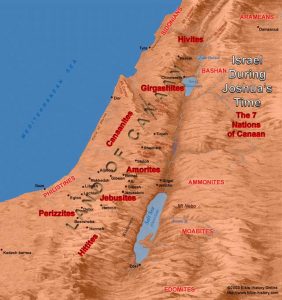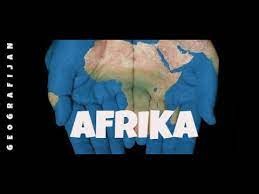Shoiftim 2021: Into Africa
by devadmin | August 12, 2021 8:22 pm
Raboyseyee and Ladies:
We begin with a big mazel-tov shout out to our friends Naomi and David Kaszovitz, upon the aufruf this shabbis and wedding this coming Monday of their son Eitan who will be marrying Rebecca Lipsky, she the beautiful daughter of Sharon and Harold Lipsky. For the Kaszovitz family, this is their second simcha in two months; keyn yirbu, if you chap! Mazel tov to both extended families, to grandma Beverly, and may Rebecca and Eitan merit to share many decades of marital bliss together. We look forward to sharing in this simcha.
A huge mazel tov to our friends Carine and Bruce Schneider upon the aufruf this coming shabbis and wedding this coming Tuesday evening of their son Jeremy, to Sara Kaufman, she the beautiful daughter of Shai and Adam Kaufman of Woodmere. We look forward to participating in this great simcha. May Sara and Jeremy be zoche (merit) to be at each other’s side, in blissful marriage for many decades to come. More on Jeremy below.
And just after we went to print last week, we got word that the Schneider’s too were busy with a second simcha as they announced the engagement of their beautiful daughter Nicole to David Solomon, he the son of Shevy and Eddie Solomon, they of Englewood New Jersey. Mazel tov to both families and keep the good news coming.
Into Africa
Welcome to Parshas Shoiftim, where among other commandments Moishe will deliver in his final days, the Yiddin will also be instructed on the appointment of a king over the Yiddin once they are fully settled in the land. I was thinking about expounding on the topic of kingship as Jeremy Schneider, the really amazing son of Carine and Bruce Schneider, is getting married this coming week (aufruf this shabbis) and mistama he thinks that the expression of choson doimeh lemelech (a groom is similar to a king) is true; It’s not! In a few short days you’ll be taking out the garbage. In case you’re wondering, Pirkei d’Rebbe Eliezer (chap. 16), does in fact state that a chatan (groom) is compared to a king. Also in case you’re wondering, Pirkei d’Rebbe Eliezer does not mention that a kallah is like a queen; real life dictates otherwise.

For many years I’ve been perplexed by several of the prerequisites for kingship and how at least a few of the most famous kings in Jewish history -shout out to both Shlomo and Dovid Hamelech- blatantly ignored the very clear instructions given by the RBSO. The RBSO said -in this week’s parsha- that a Jewish king is not to have “too” many wives but did Dovid listen? Not! He had 18, including one that belonged to someone else. He lusted and shoin. According to a few friends, in our times, even one could be too many! And did Shlomo Hamelech listen? Also not? He had- so they say- approximately 1000, who can keep count? Mistama he would have benefited from some app to keep track of his comings and goings, if you chap. And did not the RBSO instruct the king to always carry a Toirah scroll with him and to constantly learn from it? He did? Ober do we read anywhere -in all of Tanach- that either of these two fine kings spent any amount of time learning Toirah? Not! Did they attend a regular shiur? Night seder? Did either one ever pop into, or spend any time in the Yeshiva of Shem and Eyver? Also not! Were they following the daf on-line? Gornisht (nothing)! They were busy warring and tending to their affairs, if you chap. How all this worked out in their favor and why the RBSO was said to be happy with their kingships, ver veyst? One thing is zicher: it’s good to be the king! The heylige Ois will immerse himself into this topic and be back next year with more lengthy explanations. As to you Jeremy, it’s but one wife; enjoy her and mazel tov to you and your beautiful family. Veyter!
Speaking of or at least hinting to lustful thoughts which led to action and given that we are in Choidesh Elul, mamish under thirty days left before Rosh Hashono, a time in the calendar when we are to be more introspective -so they told us in yeshiva- a time when we are to reflect on our past misdeeds and chazerishe thoughts, the heylige Ois was thinking azoy: what taka should one do if one has bad thoughts? If one is consumed by them? How does one overcome lustful feelings and other thoughts of nefarious activities? Does reflecting on the past help? Or is it farkert? Does reflection result in more powerful urges and longings, if you chap? And guess what? Along came the Noam Elimelech and in the Tzeitel Katan (5) said the following:
כשיתחיל להתעורר בו מידה רעה ח”ו ממידות רעות שהוא רגיל בהם, כגון עקשנות ובושת של גאוה ועצלות ובטלה המביאה לידי שיעמום וכיוצא בהם, יאמר תיכף ומיד בזה הלשון ובכל כחו: “הכנעני החתי האמורי הפריזי החיוי והיבוסי והגרגשי” וינצל
Let’s try that in plain English please: When one begins to feel temptation from one of his bad traits which he is accustomed to, for example: stubbornness, haughtiness, laziness, idleness that bring one to foolishness and the like, he should say the following verse with all his might:, “The Canaanite, the Hittite, the Amorite, the Prizite, the Jebusite, and the Girgashite ” and he will be saved.
Say what? We are to invoke the names of the seven nations the RBSO was to kick out of the land to make room for the Yiddin? And this is supposed save us from acting on lustful thoughts? What do these nations have to do with our thoughts? How does the mention of these seven nations, the very ones the Yiddin -in our parsha- are instructed to war with as they enter the land, help? What’s pshat? How does reciting the names of the nation’s help us clear our chazerishe thoughts and weaknesses? And the answer? Ver veyst! What happens if one mentions Thailand instead? And what happens to one who says Rochov Rochov?

Shoin, since we mentioned a fix for bad thoughts, let’s quickly shout out the good rabbis of the heylige Gemora who knew a thing or two about lust and lustful thoughts. Says the heylige Gemora (Megilah 15a) and we quote verbatim, azoy:
תָּנוּ רַבָּנַן רָחָב בִּשְׁמָהּ זִינְּתָה יָעֵל בְּקוֹלָהּ אֲבִיגַיִל בִּזְכִירָתָהּ מִיכַל בַּת שָׁאוּל בִּרְאִיָּיתָהּ אָמַר רַבִּי יִצְחָק כׇּל הָאוֹמֵר רָחָב רָחָב מִיָּד נִיקְרֵי אָמַר לֵיהּ רַב נַחְמָן אֲנָא אָמֵינָא רָחָב רָחָב וְלָא אִיכְפַּת לִי אֲמַר לֵיהּ כִּי קָאָמֵינָא בְּיוֹדְעָהּ וּבְמַכִּירָהּ
The Sages taught in a baraita: Rahab aroused impure thoughts by her name, i.e., the mere mention of her name would inspire lust for her; Yael, by her voice; Abigail, by remembering her; Michal, the daughter of Saul, by her appearance. Similarly, Rabbi Yitzḥak said: Anyone who says Rahab, Rahab, immediately experiences a seminal emission due to the arousal of desire caused by Rahab’s great beauty. Rav Naḥman said to him: I say: Rahab, Rahab, and it does not affect me. Rabbi Yitzchak said to Rav Naḥman: When I said this, I was specifically referring to one who knows her personally and recognizes her beauty. Only for one who has met Rahab in person is the mere mention of her name capable of arousing lust.
Ober, says the Bnei Yisaoschor (Mamarei Chodshei Kislev-Teves, mamar 4, Hallel v’Hodaah), in the name of the Seer of Lublin), azoy: The seven nations conquered by the Yiddin are the seven sefiros of the Sitra Achra, the Side of Evil (corresponding to the seven sefiros of holiness), in the following order: HaCana’ani – Chesed; HaChiti – Gevurah; HaEmori – Tiferes; HaPrizi – Netzach; HaChivi – Hod; HaYivusi – Yesod; HaGirgoshi – Malchus.

Sitra who? Sitra what? Bottom line: in the kabbalah- way over my head- everything in this world is divided into either Sitra D’Kedushah (the side of holiness) or Sitra Achra (the side of impurity) -literally meaning “the other side,” or the side of Kelipah. There is nothing that is in between—every thought, speech, action, or creation has its source either in Kedushah or Kelipah. And? Seemingly, each word to be chanted may represent forces of impurity that a person must be wary of (Madanei Melech on Tzetel Katan, 5). What all that means, ver veyst?! And what if anything it may mean, is zicher beyond the abilities of heylige Ois to understand and then share. The bottom line: seemingly, just as the Yiddin were able to conquer those nations, so too can we overcome bad thoughts. Does this work? Ver veyst? It’s a givaldige vort for Choidesh Elul. More importantly it’s mamish a gishmake segue into the topic of the week. The topic is ‘the six nations the RBSO promised to the Yiddin.’ Six? But aren’t there seven? Let’s count them as the RBSO told them to us:
| 1- When the Lord, your G-d, brings you into the land to which you are coming to possess it, He will cast away many nations from before you: the Hittites, the Girgashites, the Amorites, the Canaanites, the Perizzites, the Hivvites, and the Jebusites, seven nations more numerous and powerful than you. | אכִּ֤י יְבִֽיאֲךָ֙ יְהֹוָ֣ה אֱלֹהֶ֔יךָ אֶל־הָאָ֕רֶץ אֲשֶׁר־אַתָּ֥ה בָא־שָׁ֖מָּה לְרִשְׁתָּ֑הּ וְנָשַׁ֣ל גּוֹיִֽם־רַבִּ֣ים | מִפָּנֶ֡יךָ הַֽחִתִּי֩ וְהַגִּרְגָּשִׁ֨י וְהָֽאֱמֹרִ֜י וְהַכְּנַֽעֲנִ֣י וְהַפְּרִזִּ֗י וְהַֽחִוִּי֙ וְהַיְבוּסִ֔י שִׁבְעָ֣ה גוֹיִ֔ם רַבִּ֥ים וַֽעֲצוּמִ֖ים מִמֶּֽךָּ: |
Indeed, the list initially given to us did specify seven nations, ober it does appear that one nation went missing. And we’re on this topic because in our parsha (Devorim 20:17) we find this very interesting posik.
| 17. Rather, you shall utterly destroy them: The Hittites, and the Amorites, the Canaanites, and the Perizzites, the Hivvites, and the Jebusites, as the Lord, your G-d, has commanded you. | יזכִּי־הַֽחֲרֵ֣ם תַּֽחֲרִימֵ֗ם הַֽחִתִּ֤י וְהָֽאֱמֹרִי֙ הַכְּנַֽעֲנִ֣י וְהַפְּרִזִּ֔י הַֽחִוִּ֖י וְהַיְבוּסִ֑י כַּֽאֲשֶׁ֥ר צִוְּךָ֖ יְהֹוָ֥ה אֱלֹהֶֽיךָ: |
How many nations are listed? Six! Let’s find out what happened to the seventh nation. Nu, it so happens that over and again, the RBSO made a promise to our forefathers Avrohom Yitzchok and Yaakov and told them that the Yiddin would be granted the Promised Land, the very land that was inhabited by the seven nations, the very nations Yehoshua was to conquer once he crossed over the Jordan. Let’s read the words again: the Hittite, the Girgoshite, the Amorite, the Canaanite, the Perizzite, the Hivvite, and the Jebusite – seven nations greater and mightier than you.”
Let’s repeat: In Vo’eschanan, the heylige Toirah delineated seven nations, ober in this week’s parsha, we find only six listed and the question is azoy: what the hec happened to the missing nation? Moreover, the nations of Canaan whose land was promised by the RBSO to Abraham’s descendants – are enumerated a total of twenty-three times; over and again the RBSO mentions them. They were the inhabitants of K’nan and they were to be expelled -for bad behavior to include avoido zoro with the asheroa tree (again mentioned in this week’s parsha along with other false gods), sexual improprieties, and who know what else; to make room for the Yiddin. They were to be expelled because they didn’t deserve the land and because the RBSO so promised such land going back all the way to Avrohom. As an aside, the Yiddin themselves weren’t very well behaved; the good news: these seven nations were worse! The nations are mentioned mostly in the heylige Toirah and in the Novee (Sefer Yehoshua).
And the issue on my mind is this: Only three of the 23 mentions actually include all seven nations; twice in Yehoisuah (3:10 and 24:11) and only once in Vo’eschanan quoted above. What’s pshat?
It appears that all other mentions of the nations, exclude at least one of the nations and the nation most often missing are the Girgoshites. The list of nations appears seven times in Shmois, all of which omit the Girgoshites (in one list, the Perizzites are omitted as well, and in another only three nations are listed). The list appears another six times in Yehoishua and the beginning of Shoiftim (Judges), and again, the Girgoshites are missing from four of these lists! Let’s look again at the posik in this week’s parsha where only six nations are listed. And the big question in the room is this: the RBSO promised and specified seven ober only six are mentioned in this week’s parsha; what’s pshat? Did the Yiddin capture six or seven? And what happened to the seventh, the Girgoshites? Let’s count the six in the posik below:
“No, you must proscribe them—the Hittites and the Amorites, the Canaanites and the Perizzites, the Hivites and the Jebusites—as the LORD your G-d has commanded you.”
Did you notice that only six nations are listed? What Happened to the Girgoshi? Why did they go missing from the list of nations? Did the RBSO give them a pass? What’s pshat? And why is that when the nations are listed -23 different times- that there is no consistency? What’s pshat?
It’s taka emes that the Ois has thought about this question for many years and it’s also emes that he quickly forgot about the question and went about doing what he normally does. Ober this year, while searching for a new topic, he discovered that he was not alone in noticing the inconsistency in this list. What do we know about the Girgoshites from the heylige Toirah, and or from the Novee? Nothing. The Girgoshites are not mentioned in any place in connection to a city or any particular place in the land. Let’s then find out what a few had to say.

Says Rashi, (commentary to Shmois 33:2 and 34:110), azoy: the list of Canaanite nations who occupied the Land of Israel before Yehoishua ben Nun came and conquered them, omits the Girgoshi because most of them fled the country, so they did not have to be driven out. When did they flee? Why? Shoin, though Rashi taka knew kimat everything, seemingly, he forgot to tell us why Girgoshi left town. Not to worry. Why not? Because the medrish (Vayikra Rabbah 17:6) too was perplexed and tells us azoy. When Yehoishua was about to enter the Land of Israel, he gave the occupying nations three choices: either leave, make peace, or wage war. Of all the Canaanite nations only the Girgoshi picked up and left, and were thus rewarded by the RBSO with the land of Afrike, (Africa), a land as beautiful as our own. Mamish?
Says the heylige Gemora (Yerushalmi Sheviis 6:1), azoy: This is in line with what Reb Samuel bar Nachman said, “Yehoishua sent three proclamations to [the Canaanites in] the land of Israel prior to the [Israelites’] entry into the land: ‘Whoever wishes to emigrate should emigrate; [whoever wishes] to make peace should make peace; [and whoever wishes] to wage war should do so.’ The Girgoshites emigrated, for they believed the Holy One, Blessed Be He, and they went to Afrike. [This is in line with II Kings 18:32:] ‘To a land like your own’ – this refers to Afrike. The Gibeonites made peace. [This is in line with Yehoishua 10:1:] ‘The people of Gibeon had come to terms with Israel.’ Thirty-one kings waged war and fell [in battle].” (Yerushalmi Shevi’it 6:1)

As an aside, the Rambam in Mishneh Toirah, Laws of Kings and Wars, Chapter 6, expounds on the exact protocols employed by Yehoishua when he gave the nations choices; check it out. And listen to this: At the time, “Afrike” referred to what is known today as North Africa, in particular the Tunis region. Chazal claimed that Afrike was a land like our own. Exactly how Africa and Israel are similar, ver veyst? Veyter.
Ober did the Girgoshi people forever give up on their homeland? Not. The heylige Gemora (Sanhedrin 91a) tells us that during the reign of Alexander the Great, the descendants of those Girgoshites who had left the Land of Israel at the request of Yehoishua, and had settled in Africa, sought to regain the Promised Land. They claimed that the Land belonged to Canaan who was there first, and that they were descendants of Canaan. Geviha ben Pesisa, however, who appeared before the king in the interest of the Jews, showed that according to Scripture, by which the Africans traced their ancestry to Canaan, that ancestor had been declared the slave of Shem and Yofes (Japheth). The Yiddin therefore, not only had the right to hold the land of their slaves, but the Africans had to indemnify them for the long time during which they had performed no service for them. In consternation, the Africans then fled to their homes. The bottom line: want to be a good lawyer? Sharpen your Gemora skills.
Does everyone agree that the Girgoshites left town on their own volition and headed to Africa? Not. One view (R. Eliyahu Kramer of Vilna) suggests that even though most of the Girgoshites left, some remained. And says R. Yitzchok Sorotzkin that we find Girgoshites as part of the coalition that fought the Israelites at Yiricho (Yehoshua 24:11), even though the Girgoshites were said to have already fled the Holy Land. Those who remained joined five other Canaanite nations in order to defend Jericho. The bottom line: whether or not the Girgoshites left and whether or not, all or most, or ever some left, ver veyst; the issue is hotly debated. Another bottom line: based on Reb Samuel bar Nachman in the Yerushalmi, whose claim may be supported by additional midrashic sources as well, the Canaanite people of Afrike are descended from the Girgoshites. Another bottom line: the RBSO did promise to give the Yiddin seven nations. Seven nations were seemingly delivered. Six of them required war games and one nation was seemingly conquered without a fight.
The final bottom line: to overcome bad thoughts, to fight the yetzer horo and win, one must seemingly recite the names of all seven nations.
A gittin Shabbis –
The Heylige Oisvorfer Ruv
Yitz Grossman
Source URL: https://oisvorfer.com/shoiftim-2021-into-africa/